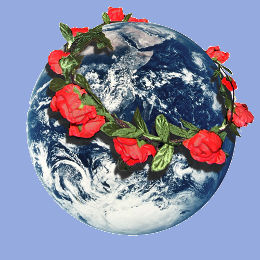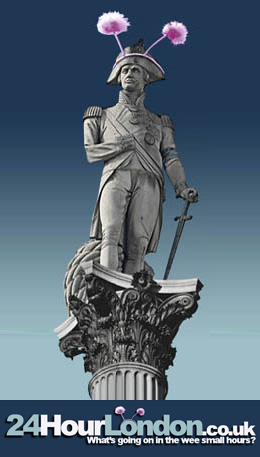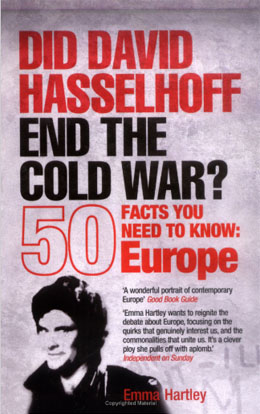I like referendums, me
Bewilderment is, it seems to me, one of the main forces behind this referendum. Some - many - people are bewildered by the EU. And a knowledge gap makes a person suspicious: "Am I being taken for a ride? Is this organisation I don't fully understand responsible for my personal woes?"
Getting your head around the European Union is hard because the organisation is unique: there are no good metaphors for it. This is its genius - it is an unparalleled work of political creativity - as well as its greatest problem. Because in politics a gap in understanding means there is also a democracy deficit.
It also suffers from a deficit of explanatory reporting, reporting that deals with first principles. But having a ballot without understanding the issues sucks meaning from the event.
So here's a contribution.
Brass tacks, the EU was created to prevent us killing each other. For a millennium European wars destroyed the continent's quality of life every couple of generations or so: we had two pulverising, global conflicts that began in Europe in the 20th century alone and the unprecedented human misery that they engendered produced the European Community, given to a still-shocked continent in the spirit of "never again". This began with a coal and steel community involving those two old foes Germany and France: France became a market for German manufactured goods and Germany a market for French food. And economic connections – business to business rather than government to government - also worked politically.
In the last 70 years there have been no major European wars and, as a result, large numbers of people - vast swathes of the population, in fact - exist who would otherwise have died in trenches or, as a result of their forebears' death, would never have been born at all. This is an extraordinary thing, a historical anomaly. As a generation, we are what the EU has made us. It always strikes me as ironic that the members of my own family who are the most anti-European are also those who would have been most likely to be conscripted in the event of another massive European war.
This historically unprecedented peace and prosperity was what Jean Monnet had in mind at the start. Now, for the first time in a millennium, there has been no pointless pan-European war for nearly a century.
Ask yourself honestly whether without EU economic co-dependence you would trust our domestic political leaders not to lead us to war against each other: think about what else they have involved our armed forces in over the last 25 years, the fact that Cameron is playing domestic, party politics over this international issue in the first place – why doesn't he just have more humility? - and then truthfully tell me that you think our national security would be safer without the EU.
Second fundamental: the common agricultural policy is a sophisticated mechanism for making sure we don't starve. Scarcity causes disputes and without food security, peace would be impossible: people do nearly anything if they are hungry enough. Europe's complex network of subsidies means that when a harvest fails at one end of the continent no one starves because we have slack in the system and the only "crisis" to speak of involves pricing. Europe subsidises its food production, which makes it more expensive than food in most of the rest of the world, but - guess what? - we can afford our expensive food due to the prosperity that our long-term political stability has given us. Moreover the percentage of our income spent on food is diminishing.
Europe is the envy of large parts of the rest of the world. Refugees from war-torn regions - places without justice - fling themselves at our shores, wanting the peace and prosperity that we take so readily for granted. But take a long look at them on the television news – we really shouldn't.
Thirdly, the EU is not a fortress. It has a mechanism for spreading its peace and prosperity. New countries can join but only once they have already remade themselves in the EU's image: having leaders invested in democracy and public service is the only way to get there. Historically speaking, this is an entirely new strategy for spreading ideas at a national level. And think of the ramifications. Turkey's drive for membership is idling at the moment. But if, one day, it did join, it has borders with Syria, Iraq and Iran. Because of the European Union it is possible to imagine a day when global democracy is more than a dream. I guess at that point some rebranding would become necessary.
* My book about European history and politics - Did David Hasselhoff End the Cold War? - is available on Amazon as a paperback or as a download.
* If you enjoyed this you may also enjoy A necessary outbreak of journalistic self-loathing, which is about phone hacking
* This article was republished in The Spectator here



